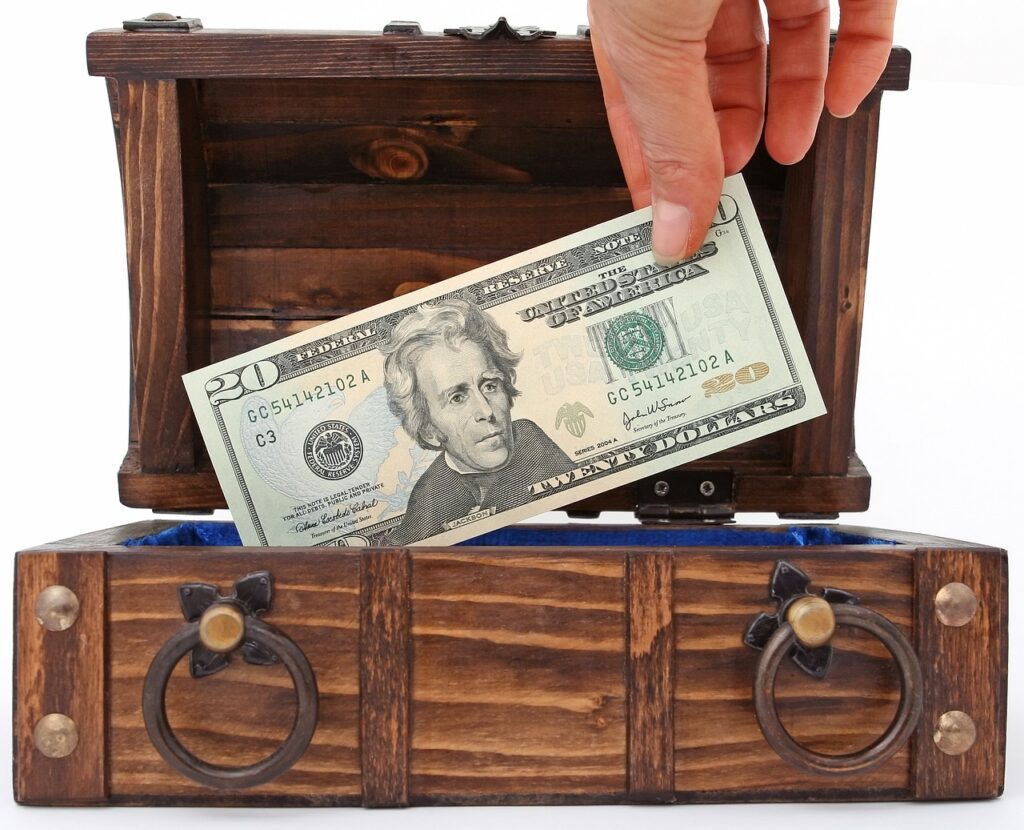
Why Accumulate?
When I speak of accumulation, I am not referring to those stacks of stuff in the basement.
I am talking about your assets. You will need them in retirement.
A Brief History of Retirement Plans
Before the 1980s, in the USA, aside from some big union shops, like the Auto Workers or Steel Workers, and some government programs, most companies did not offer a retirement plan. Many of the bigger companies, to be competitive, would offer a small pension plan or a profit-sharing plan.
Some of these smaller company plans were tied to the success of the company. That did not always end well. In fact, I knew a guy who lost all of his retirement funds when the company he devoted his work life to, went bankrupt, and the retirement funds were emptied to satisfy the creditors.
On the one hand, you should be thankful to Congress for passing E.R.I.S.A. (Employee Retirement Income Security Act of 1974). Per Wikipedia, “it provided minimum standards for pension plans in private industry. It contains rules on the federal income tax effects of transactions associated with employee benefits.” That is why we talk about 401(k), etc., as that is the reference in the IRS code.
As an accountant, I learned a lot about the IRS rules related to 401(k) plans, as they started forming plans early in the 1980s. Those funds for retirement are kept completely separate from the company and its assets.
On the other hand, the development of these plans put our retirement into our hands. We must decide how much to save. We must decide how it will be invested, within restrictions. Those plans are managed by an outside financial institution, with a limited array of investment options. And, the company, for which you work, may or may not offer a limited match to the contributions you make to your retirement account. If they do, you should take advantage of that as free money! (Though, you will pay taxes on it when you draw on it in retirement.)
A quick footnote: the Roth IRA provision is a recent addition to the options in many 401(k) plans. William Roth was given credit for adding the after-tax contribution options, in the Tax Act of 1997. This provides for contribution of after-tax money from your paycheck that will be able to be drawn in retirement without paying any tax on the contribution amount or any earnings! There are limitations, of course, but you should find a way to take advantage of this provision, especially since tax rates are unlikely to go down before you retire.
I Have Plenty of Time
I hope you said that because you are very young.
Most say that because they are not managing to live within their income.
It has been proven, because of the effect of compounding, that the earlier you start the greater will be your accumulation. Look it up. There are several examples of how that works.
The key is for you to start. Work to put yourself in the position to be able to contribute to a retirement plan and any other investments that make sense for you and your family.
If you want to retire poor, that is your choice. However, I was hoping you would buy an RV and tour the country for a couple of years, like we were able to do!
What About Social Security?
I am drawing my Social Security. However, thanks to your congressmen, I am not sure there will be enough for you.
Congress got into our fund of contributions like it was a general fund and nearly depleted the pool of money we depend on and made contributions to build up. By the way, congressmen do not rely on Social Security for their retirement! This is a political hot button, for sure!
A portion of my blog posts will focus on what you can do to avoid depending on those, whose decisions are selfish and could affect your personal finances. Your retirement options are up to you. So, be careful not to depend on the government to provide for your care in your later stage of life.
Please learn all you can about accumulation and compounding. Use them to your advantage!
What About Investment?
Do you have any savings? If not, then you will have a hard time investing in the stock market.
The caution phrase of ALL stockbrokers is that “past history does not guarantee future success”. So, do not invest any money you cannot afford to lose.
That is disappointing. I am sure that is why folks buy lotto tickets!
How Do I Accumulate?
You can start small by putting money in savings.
You can save by paying with cash or debit card instead of using a credit card.
Get and stay out of debt, except for a house. And swallow your pride and drive an older vehicle.
Accumulate your savings to cover emergencies, including 3 to 6 months of living expenses, in case you cannot work or lose your job.
Above that amount, take the risk to use various forms of investing. The stock market is not the only avenue to follow. Rental property, buy and sell things, start a business on the side, etc.
Big Numbers Are Hard to Handle
Remember, I said you are responsible for saving for retirement.
When you are younger, those balances will be small, maybe up to a year’s pay. That would NOT be enough to retire on.
Then, when you get to 40 or 50, the amounts start to catch your eye. They will start to make you feel “wealthy”. “Wow, I have over $100,000 in my account!”
Let me bring you back to earth. You may live until you are 90 or more. How long do you think that will last?
Social Security will be flaky, at best. They will extend the age to start drawing your first check. It used to be 65. Currently, it is up to 67 and it will go higher.
The stock market does not always go up. So, you may seem to lose ground from time to time.
And, hopefully, you are using the Roth, after-tax funding, as much as you can. Retirement plans are mostly “pre-tax” funded. So, what you see in your account is not what you will get when you draw on that plan. Remember, you get ALL the Roth portion of the plan, including the earnings, because the taxes have already been paid.
Remember, big numbers may not be big enough when you must make it last over 20 to 30 years!
So, do NOT use those funds to buy a boat or RV until AFTER you retire!
